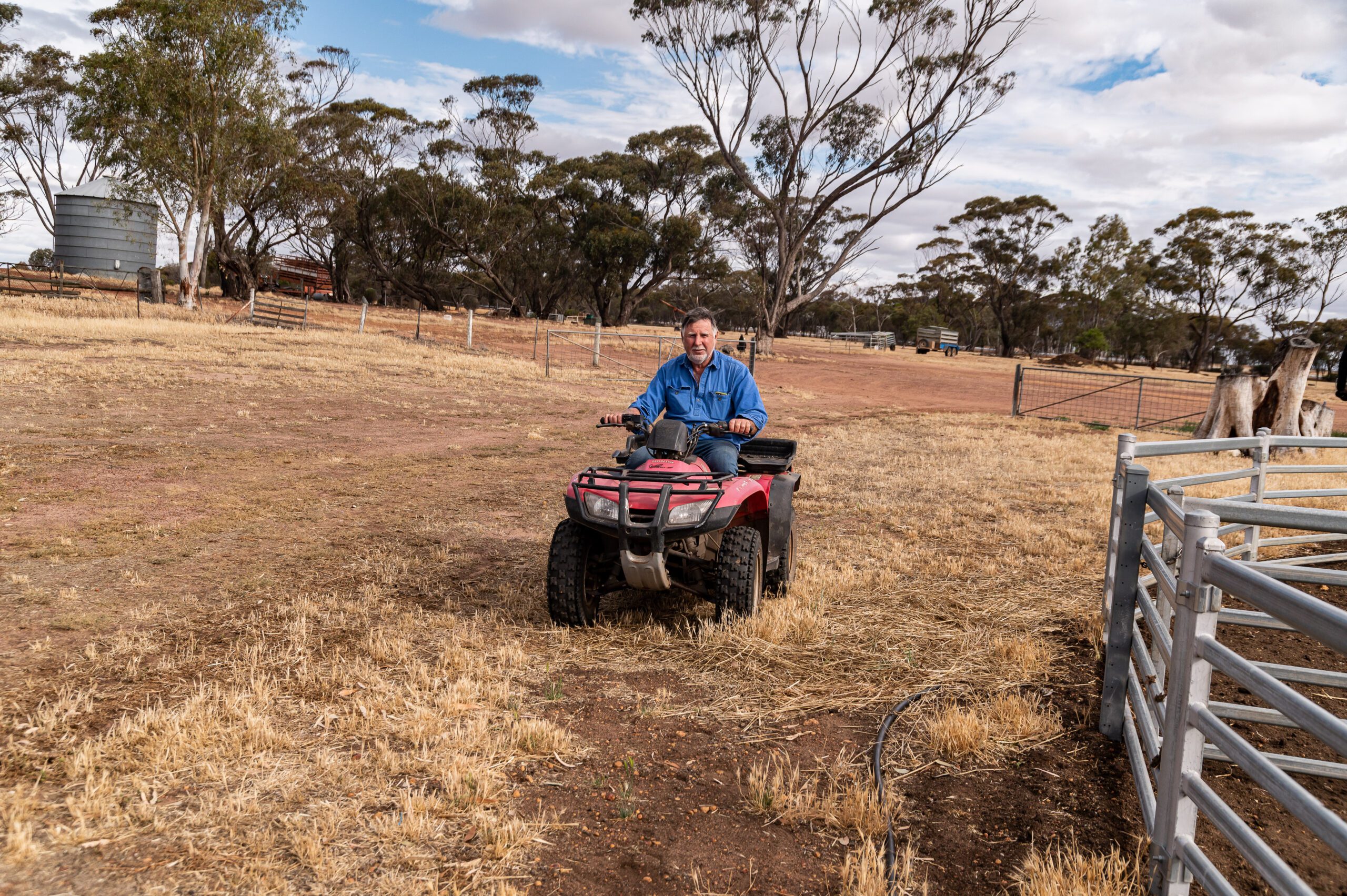In my December 2023 article, I briefly touched on the crucial role of a good relationship with your Banker or bank in the farm business. I thought it would be useful to delve further into that in this article, as it’s a topic that’s always relevant and beneficial. Especially now, with new members joining the farm business or taking on management roles, this information could be particularly useful.
By enhancing your relationship with your Banker, you gain a powerful ally in managing your farm business’s long-term financial needs.
This alliance, built on a deep understanding of your financial situation, goals, and challenges, empowers you with personalized advice and solutions. With your Banker’s trust and knowledge, you’re better positioned to secure funding with favourable terms, putting you in the driver’s seat of your financial future.
Furthermore, bankers can offer valuable financial information & support to help you navigate financial decisions and manage your cash flow. With a good relationship, bankers are more likely to be proactive in helping you manage financial difficulties or take advantage of new opportunities by offering early identification and solutions for potential issues or opportunities. This mutual support and understanding foster a sense of connection and shared goals, making your financial journey less daunting and more rewarding.
A positive relationship also gives you better leverage in negotiating loan terms, interest rates, and fees, as banks may be more flexible with customers they know well. Moreover, banks often provide services beyond lending and deposit accounts, such as investment advice, wealth management, and business services, which you can easily access through a strong relationship.
So, it’s worthwhile thinking about strengthening your relationship with your bank and Banker.
Look to build a strong rapport that is developed naturally over time. Begin by having conversations that allow you to find out information about the person, including details about their family, work history, and background. In turn, share your own background, including information about you, your family, and your farm business and its history. This exchange can uncover shared interests and highlight commonalities and differences in your backgrounds, fostering a deeper understanding of each other. These shared interests can form the basis of a strong and engaging relationship with your Banker.
Trust and respect are fundamental to any relationship. Be open, transparent, and candid, sharing both good news and bad news. Demonstrate reliability by following through on your promises, and if you can’t, inform them as soon as possible to allow for timely alternative arrangements. Be respectful and demonstrate respect. As the old saying goes, ‘Treat somebody the same way you’d like to be treated yourself. ‘
Meeting face-to-face regularly can significantly aid in building rapport over time. Conduct bank reviews on the farm whenever possible. Not only is it a place of comfort and hopefully pride for you, but it also allows the Banker to get out and away from the computer and their four walls and see the environment in which you work and live. Most bankers in farm lending enjoy meeting their clients on the farm, especially if they have had a family farming connection in the past.
Take advantage of farm visits, especially in the spring, to give tours and show what you’re doing or hoping to do in the future. Attend events organized by your bank or Banker; often, a lot of work and effort goes into organizing an event and having clients attend is always valued. Don’t underestimate the value of a cuppa and meal, which can broaden discussions beyond immediate business matters. If meeting in person is not feasible, use technology like Zoom or Teams for video calls, especially for in-depth discussions and sharing financial information or documents typically provided on paper in a face-to-face meeting.
Be willing to discuss your immediate, medium-term, and long-term goals. This sets the scene for where you want to go in the future, allowing both parties to work closely to achieve these goals. It also helps identify opportunities as they arise, enabling timely discussions.
A great banker wants to help you where they can achieve your goals and will also be able to guide and plan out timeframes as to what may be achievable and when, particularly when needing to borrow money is involved. The earlier they are aware of this, the better, as some timeframes can’t be achieved due to financial constraints, but plans can be put in place to get there at the most appropriate time.
Develop relationships with other people within your bank. Bank staff often change every one to five years, so knowing and building relationships with others is beneficial. This includes support staff who work on your finance submissions, as they can be invaluable if your Banker is unavailable. If they are located at the same branch as your Banker, take the opportunity to meet with them if you’re going to the branch. If possible, see if they can occasionally join the Banker on a visit to your farm. Another important person to meet is your Banker’s boss or leader, allowing them to learn about you and your farm business. Again, they become a valuable resource if your Banker is unavailable or has a vacancy. They will not often work in the same location, but they may visit the area occasionally or attend events that present the opportunity to meet.
Additionally, develop & cultivate relationships with other bankers and banks within your region or sphere of operation. Get to know who’s who, as this can be crucial if issues arise, and you need to speak with someone else. This can become important in the future if you have experienced significant issues and you need to understand what else is out there, whether your Banker has left and not been replaced, or your bank has changed its strategy or appetite for farm lending. Avoid being the squeaky wheel. Reflect on people or situations where they have been the squeaky wheel and strive to avoid it.
Avoiding this can include providing timely and accurate information when required. When upset about something, don’t forget to put the shoe on the other foot and try to understand the other side’s perspective. Ask questions to understand why things are the way they are and what can be done to make the situation different or better.
Everyone has pressure points in their daily lives and business. Let your Banker know what these are for you and take the time to understand them. Banks and bankers face increased compliance and regulation requirements, which can delay processes like opening accounts or increasing funding. They also require a lot of information, such as identification of individuals and businesses, ownership & control clarity of key assets such as farmland, certified copies of trust deeds and variations of trust deeds, current financial information (Profit & Loss and Balance Sheet from the most recent financial year) from your accountant and forecast cashflows and production worksheets for the current production year.
Be prepared for things not to go as planned and flexible when this happens. While patience is important in time-critical situations, be proactive in understanding potential barriers to meeting deadlines. This will allow you and your Banker to work collaboratively for the best outcomes and to develop contingencies when necessary.
Familiarity and a strong relationship with your Banker can lead to quicker processing of your transactions and requests, which is crucial in time-sensitive situations. Building a trusted relationship with your Banker can give you peace of mind, knowing that your financial interests are being looked after by someone who understands your needs and goals. Enhancing your relationship with your Banker can lead to better financial support, more tailored advice, improved credit access, and more effective financial management.


